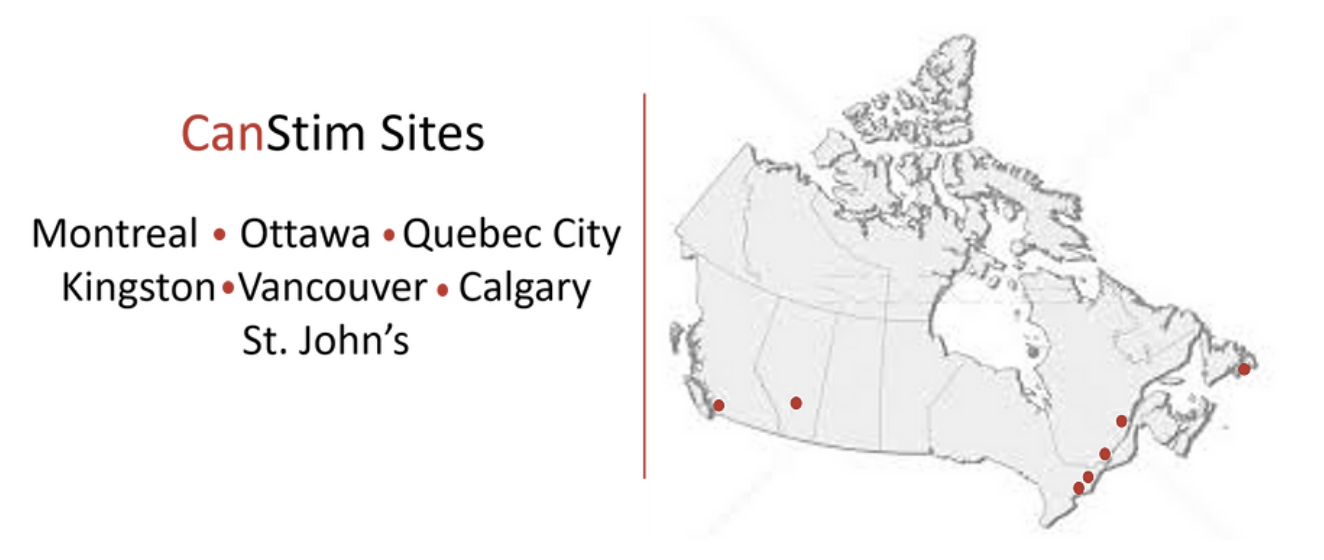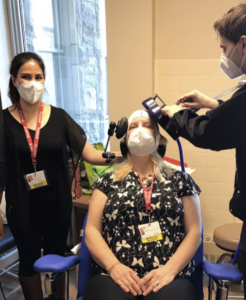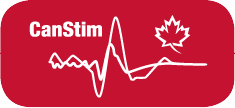CanStim is the Canadian Platform for Research in Non-Invasive Brain Stimulation. Established in 2017 and funded by Brain Canada, in partnership with the Canadian Partnership for Stroke Recovery and REPAR, CanStim is an innovative translational platform for the development and optimization of protocols for transcranial magnetic stimulation (TMS) and other non-invasive brain stimulation techniques for investigation in the clinical trial setting. With integrated pre-clinical and clinical arms, this platform is unique in Canada and worldwide.
The CanStim network of investigators consists of experts in non-invasive brain stimulation from academic institutions across Canada spanning the continuum of discovery and clinical care. The CanStim Platform disrupts conventional discovery paradigms and will accelerate protocol development and enable the rapid uptake and translation of brain stimulation to the clinic for stroke rehabilitation




